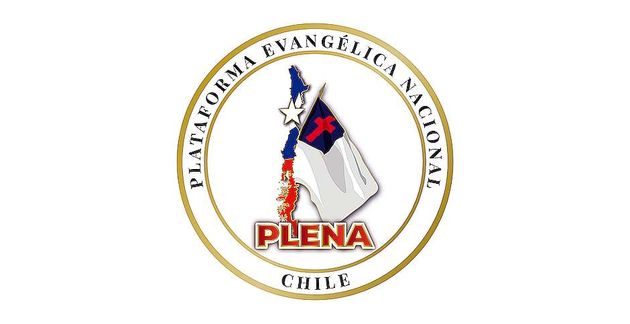Evangelicals denounce that the Constitution “will divide rather than unite the people of Chile, weaken democracy” and that the government did reject their proposals.
![Santiago de Chile, Chile. / Photo: [link]Michelle Celedon[/link], Unsplash, CC0.](https://cms.evangelicalfocus.com/upload/imagenes/62cd2619d5d38_michelleceledon940.jpg) Santiago de Chile, Chile. / Photo: [link]Michelle Celedon[/link], Unsplash, CC0.
Santiago de Chile, Chile. / Photo: [link]Michelle Celedon[/link], Unsplash, CC0.
The National Evangelical Platform (PLENA), made up of several groups of Chilean evangelical pastors and leaders, has issued a strong statement on the proposal of a new Constitution in Chile.
They say that, as many other citizens have already expressed, they wish to improve relevant aspects in Chile “such as retirement, health, education, security, decentralisation, social justice, better distribution of wealth, equity, greater opportunities, environmental protection, among other issues that have been pending for so many years”.
They also value the efforts made by the Constituent Convention and positively see the visibility of issues such as regionalisation and the social rule of law.
However, PLENA believes that the proposal has been used by minority groups to introduce extreme ideologies that do not represent the majority; and that “will divide rather than unite the people of Chile, weaken democracy and institutions which are necessary to govern a nation in peace”.
That is why they reject the entire current draft of the Constitution, which “focuses on the state, rather than on people”. This will produce "instability and greater poverty” as has happened in neighbouring countries, they believe.
“If a new path is opened, we believe it should be done with the input of experts. We pray that God will watch over our nation from the anti-theistic and discriminatory activity and expressions that some minority groups want to impose through this Constitution”, the evangelical platform writes.
They warn that, recognising 11 nations within one nation, “increases division instead of unity” and positively discriminates against the indigenous people, who represent only 12% of the country, “granting them privileges over the rest of Chileans”.
Furthermore, it does not recognise the evangelical people even though they are a “major minority”, representing 16.6% of the population according to the 2012 official census.
“All our proposals presented through popular initiatives were rejected”. One of the things proposed by PLENA was to recognise the social work of evangelical congregations throughout the country, "a work that is mostly carried out without asking for money from the state”.

Regarding indigenous issues, for example, the draft proposes a “differentiated justice” that favours native peoples over the rest of Chileans, securing them land unlike the rest of Chileans.
The draft Constitution also gives much power to the Parliament, eliminates the Senate and transforms the judiciary, putting the democratic rule of law at risk, critics say. There are no guarantees for a good economic model that would ensure resources to fulfil the promised social rights, they add.
Another negative aspect is that it “gives nature and sentient animals the same rights as human beings, but does not recognise the right of the human being or unborn child, who lacks all rights”, the evangelical group says.
According to PLENA, it is worrisome that the draft “gives privileges to sex-gender dissidence, keeping seats for them in Congress and including them in all public bodies, and recognising the gender approach and its different sex-gender manifestations in education from early childhood”.
This will become worse, they explain, by eliminating the preferential right of parents to educate their children, leaving out the concept of the natural family as the central nucleus of society, talking about “families in their different forms, expressions and ways of life”.
On the other hand, the proposal rejects conscientious objection, which was a call made by evangelicals to support popular initiatives.
It also restricts freedom of education. The state ensures the right to education, but this must be guided by principles that in many cases are contrary to biblical principles. “This puts at risk the continuity of denominational educational projects”.
Regarding religious freedom, freedom of worship is restricted, as religious freedom will be limited to the provisions of this Constitution, which would include gender ideology that is opposed to the biblical worldview.
Furthermore, the draft of the new Constitution includes comprehensive sexual education “under principles that as Christians we do not share, such as the gender focus"; where "all women and people with the capacity to gestate (...) are guaranteed a voluntary interruption of pregnancy”.

Las opiniones vertidas por nuestros colaboradores se realizan a nivel personal, pudiendo coincidir o no con la postura de la dirección de Protestante Digital.
Si quieres comentar o